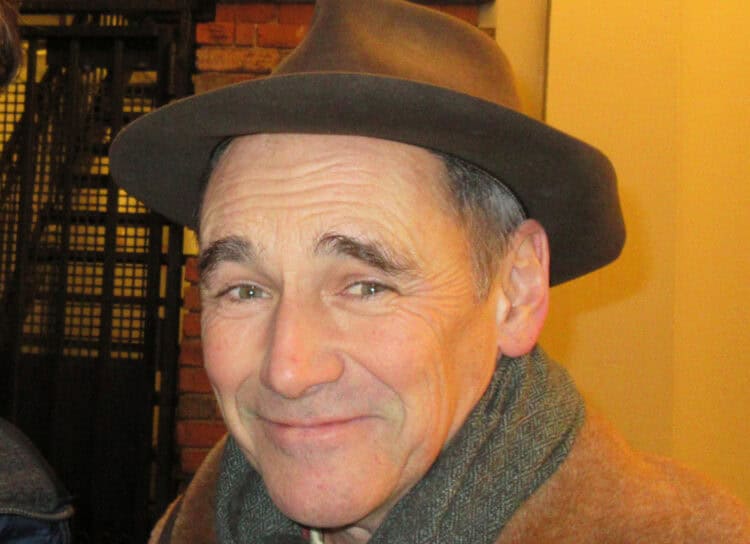Mark Rylance is the actors’ actor, you would have to go a long way to find someone who has slated his performance on stage or film.
Hw won the best supporting actor Oscar for his performance in Bridge of Spies, which probably brought his wider attention, as he was better known as a theatre actor before that.
Here he is getting the award…
Theatre directors would not accept someone like me now, Sir Mark Rylance has also said.
Sir Mark said acting used to be more accepting of “oddballs” like him.
He was knighted for his services to theatre in 2017.
Mark said: “I’m not a doctor, I’m an artist, but I remember when I first came into the theatre in 1980, I feel like there were a lot more kind of oddballs and difficult people in the theatre. And I think on film sets too.
“Now I regularly, understandably, meet directors who only want people who are easy to work with, they don’t want anyone difficult, they don’t want anything like that.
“And I think that also can be a loss.”
Asked what he was like as a younger actor, Sir Mark said he was “temperamental, moody and difficult to understand”.
Mark Rylance
He featured in a Q&A in The Guardian with questions from stars including Greta Thunberg, Eddie Redmayne and Harriet Walter and many others.
It was this response to a question about loss that has gone viral.
Here is the question and answer…
So many of your recent cinema, stage and television roles have been about tragedy. Plus, you have experienced terrible personal tragedy in your own life, including the death of your stepdaughter and, more recently, your brother. How do you recharge your batteries – physical, emotional and spiritual?
Amy Hersh, New York
It’s interesting the way this question is phrased, as if those events drain one’s life batteries. I feel hollowed out by loss but I don’t feel the need to refill that hollow place. Initially, there’s a temptation to drink too much or smoke too much or work too much to try to fill the space with something else. But then you realise that empty spaces can be good. Miles Davis’s trumpet, Jacqueline du Pré’s cello would be nothing without the emptiness inside, carefully carved out by someone. And eventually you realise that emptiness is something you feel comfortable with. This person I adored is gone and now there’s a space there – but in a way they also live alongside me in spirit. And if you try to fill that space they left, it won’t work and the effort will wear you out. Better to think of it as a beautiful thing. Again, I think of artists like Miles Davis and John Coltrane, how the air moves through those hollow spaces and makes beautiful music.
You might agree with this resposne?
Greta Thunberg
Here is Greta Thunberg’s question and answer from Sir Mark
What role does culture play in embracing the climate emergency?
I think our big problem is that we are not living as if we are part of nature – we think of ourselves as separate from it. And we think the climate emergency is something we can dominate and control and vaccinate and genetically engineer our way out of – or, failing that, we can escape to other planets, as in Don’t Look Up. We must get humble; we have to get our hands in the earth and our feet on the ground. Charles Eisenstein, the American commentator who wrote The More Beautiful World Our Hearts Know Is Possible, has this concept of “interbeing” that I find inspiring. We must move – we are inevitably moving – towards a state of interbeing with nature. We’ll either do it wisely and well or it will be forced upon us. I think the arts have an enormous role to play here because we must draw people towards an understanding of interbeing with the stories we tell in our culture, in our plays and films and books, and those stories must be told with imagination, beauty and joy. Beauty inspires. And this is just one reason why the decimation of the arts and the imagination in our schools is disastrous.
Related: ChatGPT: Black Mirror creator Charlie Brooker slams sh*t AI episode idea





